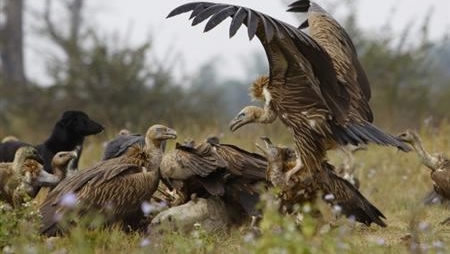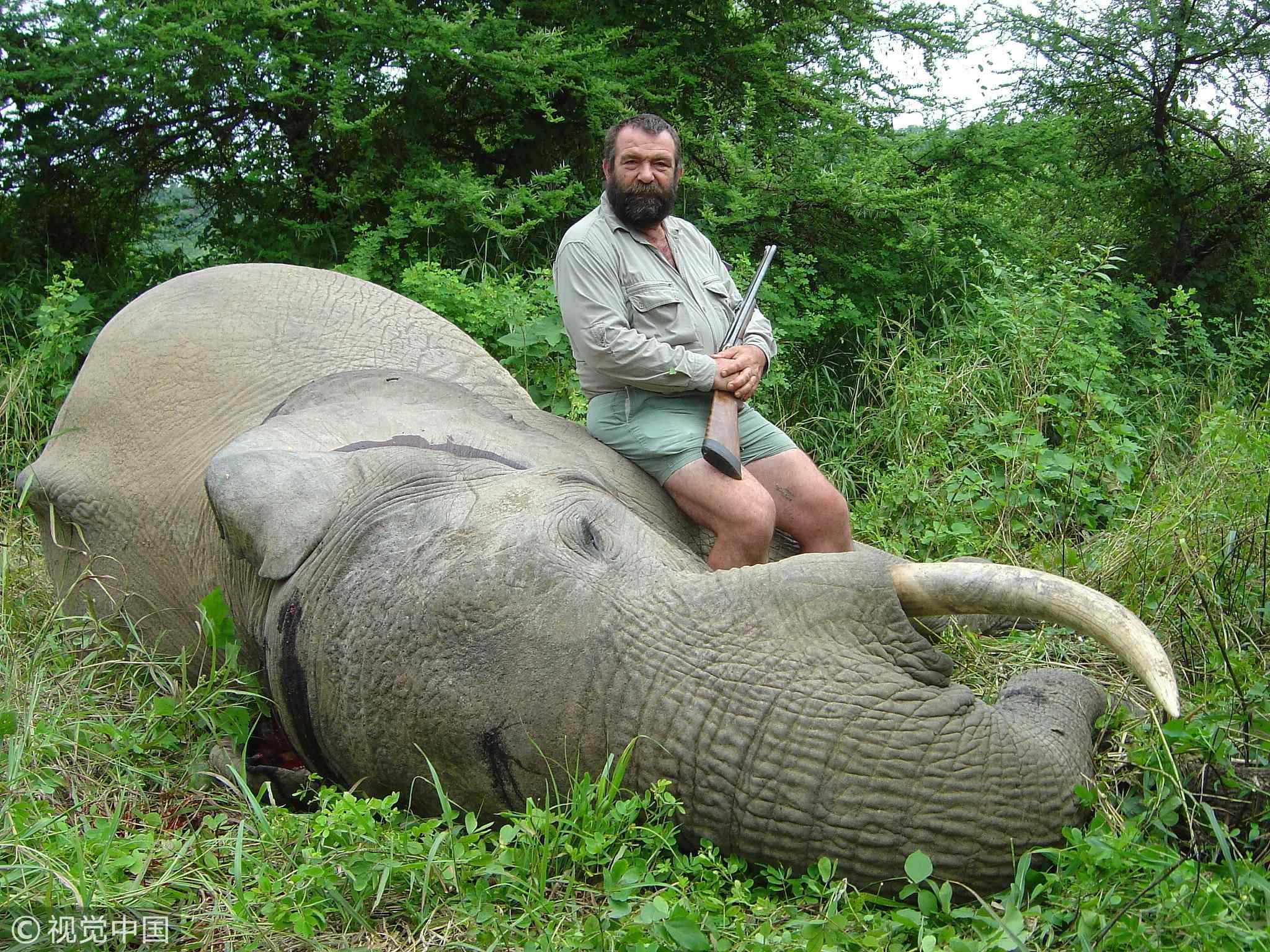
Tech & Sci
15:17, 16-Mar-2018
Hunters' bullets are poisoning African vultures
Alok Gupta

Large-scale use of ammunition bullets for hunting in African countries has resulted in lead poisoning among endangered vultures.
A team of researchers in a study revealed, hunters' bullets containing a significant amount of lead shatter inside their prey. Vultures scavenging on these hunted carcasses in the process ingest meat contaminated with lead.
The four-year study based on tests of nearly 566 critically endangered African White-backed Vultures found that a third of them have high levels of lead in their bloodstream during the hunting season. Around 30.2 percent of birds showed elevated lead levels, and 2.3 percent indicated subclinical exposure.
“Our results support the growing body of evidence globally that suggests elevated lead levels in wild scavenging birds are associated with uptake of spent lead ammunition from hunting,” researchers maintained.
Researchers captured vultures throughout the year between 2012 and 2015, both in and out of the hunting season. Hunting season starts from April to November, and there is no hunting from December to March.
Globally, vultures are facing extinction from poisoning, being hunted for use in traditional medicine, and colliding with electrical wires. The California condor, a vulture species, almost became extinct through direct ingestion of lead from hunted carcasses.

David Barrett with an elephant he shot dead in 2009 in Zimbabwe. Such hunting with bullets with high lead content is also killing African vultures. /VCG Photo
David Barrett with an elephant he shot dead in 2009 in Zimbabwe. Such hunting with bullets with high lead content is also killing African vultures. /VCG Photo
Trophy hunting is backbone of African economy, but there is way out for vultures
Many countries have started banning lead ammunition including bullets, but it had no impact on contamination in the threatened bird. In 2014, Botswana banned hunting on government land, triggering a large-scale use of lead bullets in private farms. In turn, lead level in the vultures’ bloodstream soared.
The recreational hunting sector is a backbone of southern Africa, attracting more than 90 percent of hunters who visit Africa. In 2007, Botswana’s economy flourished from trophy hunting. In South Africa, recreational hunting contributes more than 80 percent of the total revenue from trophies on the continent.
"Hunting may have become more concentrated after the ban, and this might explain the increase in lead levels in vultures following the ban, since the vultures may have tapped more into this food supply,” Beckie Garbett, lead author of the study, maintained in a press statement.
Similar patterns of poisoning have wiped out vulture populations in Asia. In the last two decades, widespread use of diclofenac — an anti-inflammatory drug administered to cattle — killed 99.9 percent of White-rumped Vulture and 97 percent of Slender-billed vulture populations 1992 to 2007 in India.
Vultures suffer renal failure after consuming the flesh of animals that were administered diclofenac. Plummeting population of scavengers reduced the burden of decaying carcasses. With vultures going nearly extinct, dead cattle are spreading infections, stink, and pollution in India. The government started captive breeding of vultures a few years back.
The decline in the vulture population has also increased the stray dog population in the country. According to a study by environmental economist Anil Markandaya, carcass meat became abundantly available for canines, leading to unprecedented growth in their population from 18 million in 1987 to 25.5 million in 1997. In turn, a number of rabies cases soared to 20,000 every year in India.
Researchers pointed out declining vulture populations in Asia and Africa has a far-reaching impact on the environment. African vultures have shown catastrophic declines with many species now upgraded from “Endangered” to “Critically Endangered” category.
“We recommend that lead ammunition in Botswana is phased out as soon as possible to help protect this rapidly declining group of birds,” researchers suggested.

SITEMAP
Copyright © 2018 CGTN. Beijing ICP prepared NO.16065310-3
Copyright © 2018 CGTN. Beijing ICP prepared NO.16065310-3